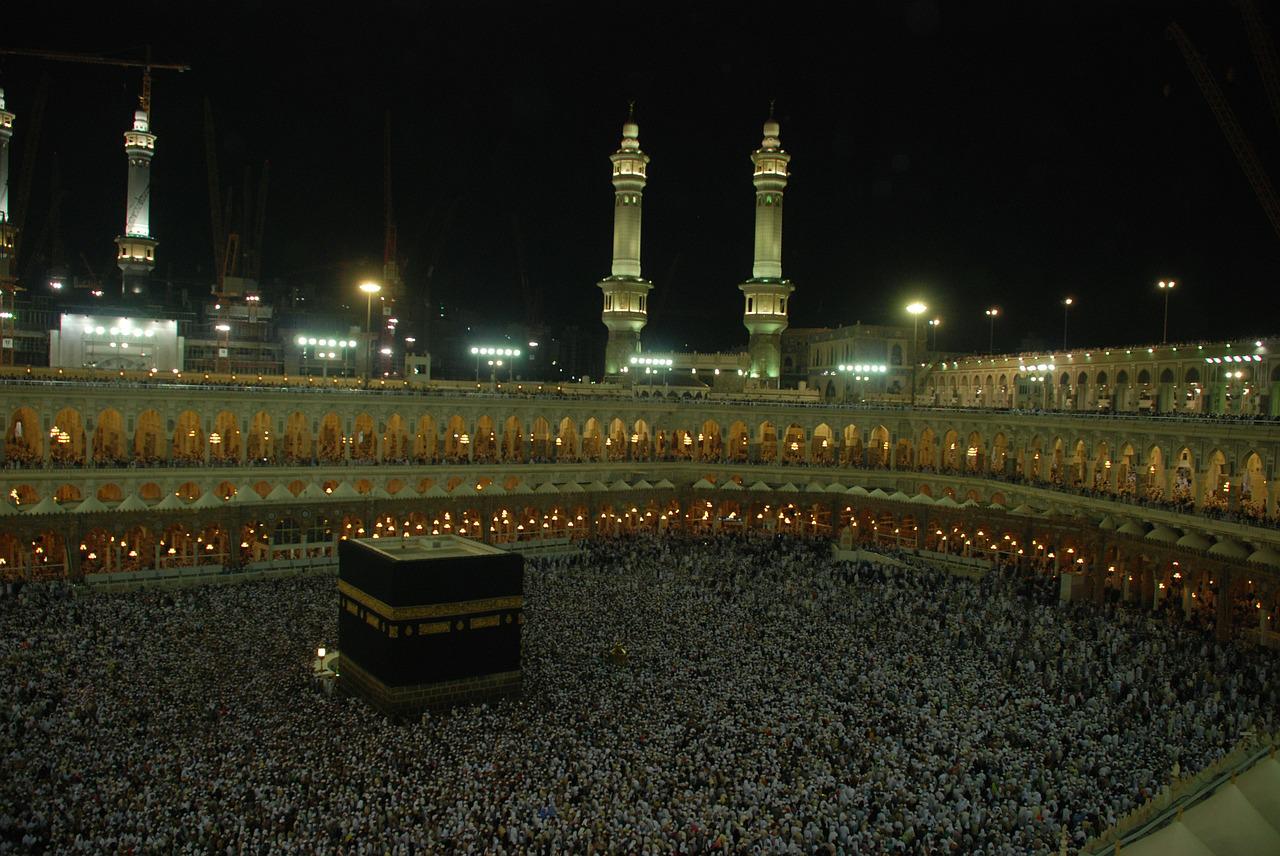
The Hajj is a religious obligation that must be fulfilled by all able-bodied Muslims at least once throughout their lifetime. It is performed annually at Mecca. The pilgrimage, a five-day ceremony that occurs in the last month of the Islamic calendar, is completed by almost two million Muslims each year.
The Hajj is a religious pilgrimage that is considered to be one of the Five Pillars of Islam. It is prohibited for Muslims to engage in sexual activity, dispute, engage in violent behavior, or cut their hair or nails while they are in the holy state of Ihram, which is a state that Muslims must enter in order to complete the pilgrimage. Even though they are worn out by the trip they are about to embark on, Muslims must never lose their composure when in the state of Ihram because of the religious importance of the state.
The journey known as the Hajj is something that every able-bodied Muslim should try to do at least once in their lifetimes. Muslims also believe that by making the trek, they may cleanse their souls of any past transgressions and make a fresh start in front of Allah (SWT).
Muslims walk in the footsteps of the Prophet Muhammad (PBUH), as well as the prophets Ibrahim (AS) and Ismail (AS) who came before him. They also walk in the footsteps of Hagar, the wife of Ibrahim (AS), who went seven times between two hills in search of water for her dying kid. In the religion of Islam, it is believed that Allah (SWT) created a spring that is still active in the modern day.
In light of the importance of the Hajj, it is standard practice for Muslims to look for methods to increase their loyalty to Allah (SWT), and one of these ways is for women to cover their hair and wear the hijab (head covering).
The Hajj takes place during the month of Dhul Hijjah, which is the last month of the Islamic calendar. It starts two days before the festival of Eid ul-Adha and continues through the event's duration of three days. This indicates that the duration of the Hajj is a total of five days.
A shorter pilgrimage known as the umrah takes place in the holy city of Mecca on the first day of the Hajj. After circling the Kaaba, which is the edifice that is placed in the center of the Masjid al-Haram, which is the most significant mosque in Islam, this is the time when Muslims retrace the steps that Hagar took between two hills. This takes place during the Sa'i, which means "returning." Some Muslims make the journey to Medina, the city that is home to the mausoleum in which the Prophet Muhammad (peace be upon him) is buried, before continuing on to Mecca.
The day comes to a close as we make camp in the valley of Mina for the night. Pilgrims start their journey to Mount Arafat on the second day of the Hajj, where they will spend the afternoon. They will also ascend the peak known as Jabal al-Rahma, which is the location of the Prophet Muhammad's (PBUH) last speech. Later in the day, while the sun is setting, Muslims will go westward from Arafat to Muzdalifah. Although boarding a bus is an option, the majority of Muslims elect to walk the 8.5 kilometers (5.5 miles) that separate the two locations.
During the last three days of the Hajj, which coincide with Eid ul-Adha, Muslims execute the following rituals: they make one final circumambulation around the Kaaba, throw stones in Mina that they picked up along the way to Muzdalifah, and remove the Ihram (a sacred state Muslims enter to perform the pilgrimage). As a gesture of regeneration, males will also shave their heads, while women will clip off a lock of hair from the back of their head. During the three days of Eid ul-Adha, Muslims will not only finish the trip of Hajj, but they will also carry out the ritual sacrificial slaughter of cattle and give portions of the meat to those who are less fortunate, as is required by Islamic custom.
To do the Hajj at least once in one's lifetime is a religious obligation in Islam that one must fulfill if they are of sound mind, in good physical health, and able to do so financially. Those who successfully perform the Hajj pilgrimage are eligible to add the title "Hajji" to the end of their name.
The word hajj comes from an Arabic phrase that means "to plan a voyage," which is how the pilgrimage got its name. Children are not required to do the Hajj because they are not mature enough to do so. This is for the same reason that individuals who have not reached puberty are exempt from the need to fast throughout the month of Ramadan. While this is being said, it is permissible for children to accompany their parents or guardians on the Hajj, and the kid will get the benefits of the journey regardless of their age.